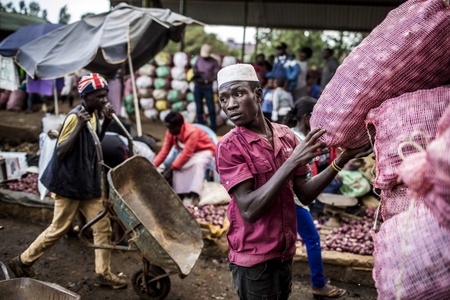The University of Aberdeen will play host to more than 30 experts this week as they consider how to address threats to, and opportunities for global agriculture.
The experts will discuss how agricultural research and policy can re-orient itself to address the increasingly complex challenges that the developing world is facing today for its food, nutrition and environmental sustainability.
May 9 and 10 will see 32 scientists from CGIAR, a global research partnership food security that is dedicated to achieving a world free of poverty, hunger and environmental degradation, gather to respond to these challenges and develop new solutions.
Professor Maggie Gill who is hosting the International Workshop on State of Foresight in the CGIAR explains: “The landscape of agricultural research for development is evolving rapidly. The world faces new, more complex, and more interrelated challenges, such as achieving food security in the face of climate change; meeting the growing global demand for agricultural commodities while reducing deforestation, biodiversity loss and water scarcity; creating meaningful employment for a rapidly growing youth population; and producing not only more food, but more nutritious food, in rapidly globalizing agri-food markets serving increasingly urbanized populations.”
The workshop is organized by the CGIAR’S Independent Science and Partnership Council (ISPC), a standing panel of scientific experts that provides independent advice to the CGIAR System Council. The mission of the ISPC is to help strengthen the quality, relevance, and impact of CGIAR research by enhancing the System Council’s capacity to make evidence-based decisions in support of effective agricultural research programs for sustainable development.
“The ISPC is conducting a comprehensive foresight exercise to inform the strategy of the CGIAR, and to provide context and emerging insights as a basis for system level prioritization of research,” explains ISPC member Professor Prabhu Pingali (Cornell University) who is currently leading this strategic initiative.
The workshop is expected to help shed some light on the current state of foresight capacity and focus in the CGIAR and reach a consensus on the key drivers and trends affecting global food systems that must be considered in developing participatory scenarios for the CGIAR system. As part of this, a book on “Global Agri-Food Systems to 2050 – Threats and Opportunities” will be published in 2018.
Professor Maggie Gill who is chairing the workshop added: “It is an honour to be chosen to host such an important event and we are delighted to be part of what is a vital and significant discussion.”
ENDS


